| Music |
| Songs |
| Song Years |
| Song Artists |
| Song Titles |
| Song Charts |
| Albums |
| Album Years |
| Album Artists |
| Album Charts |
| Site Index |
Who was the world's biggest music act of all time?

| Adjust the analysis here | ||
| Album v Song Weight | Songs 8 Times | |
| Album Weight Decline | a 16th | |
| Album Years | Three | |
| Normalise Start | 5 | |
| Normalise Range | 8 | |
| Parameter | Value | |
There are many alternate ways to calculate the world's most high charting musical act, comparing the relative success in each year (for songs and albums) or using factors to correct for the preponderance of recent charts (for songs and albums). This page lets you try adjusting different parameters to explore how the overall result changes. The triangular buttons in the form to the right let you vary: the weight of albums versus songs; the number of years an album has influence; the way an album's score declines after release; and the range over which each year is normalised. As you adjust these (assuming your browser has JavaScript working) the result will be interactively shown above.
The calculation here uses the data in the CSV file applying the weighting you've selected for albums and songs. It then "equalises" each year by dividing all the scores by the average in the selected range (so if the image says "Norm 5..9" that is the average score of the 5th to 9th positioned artists in each year).
There are some interesting things to see as the parameters get changed, The Beatles are usually top, but not always, for example when albums have no influence Elvis Presley is normally the top act (for an example look here). When songs are ignored the results only apply after 1950 (of course) and The Rolling Stones are normally second, in this case there are some combinations of parameters that put Elvis fourth (such as this one). The results from setting albums to a low weight seem the most reasonable to us, the start position, this one and this one for example all produce pictures that look OK (but seem to indicate different things).
This page allows you to try your hand at playing with the parameters, if you find anything interesting write and tell us.
The calculation to produce these results is a fairly complex one, so (as it says in the picture) the results come from data version 2.3.37 rather than the current one (version 2.8.0061).
Most Successful Musical Acts
Different choices of the parameters to use lead to a range of final orders for the list. The final choice of how important different components are has to be a personal one. For us many of these varients seem to deliver similar results. Here is one of these calculated orders that takes into account album and song success and balances between recent and early artists (the exact process used in this case is explained in more detail below):
The score was calculated starting from the complete data (a summary data set can be downloaded). The raw scores were then corrected by a factor to take into account the number of chart entries for each year. The album values were given twice the weight of the songs and the combined scores were assigned to the artists.
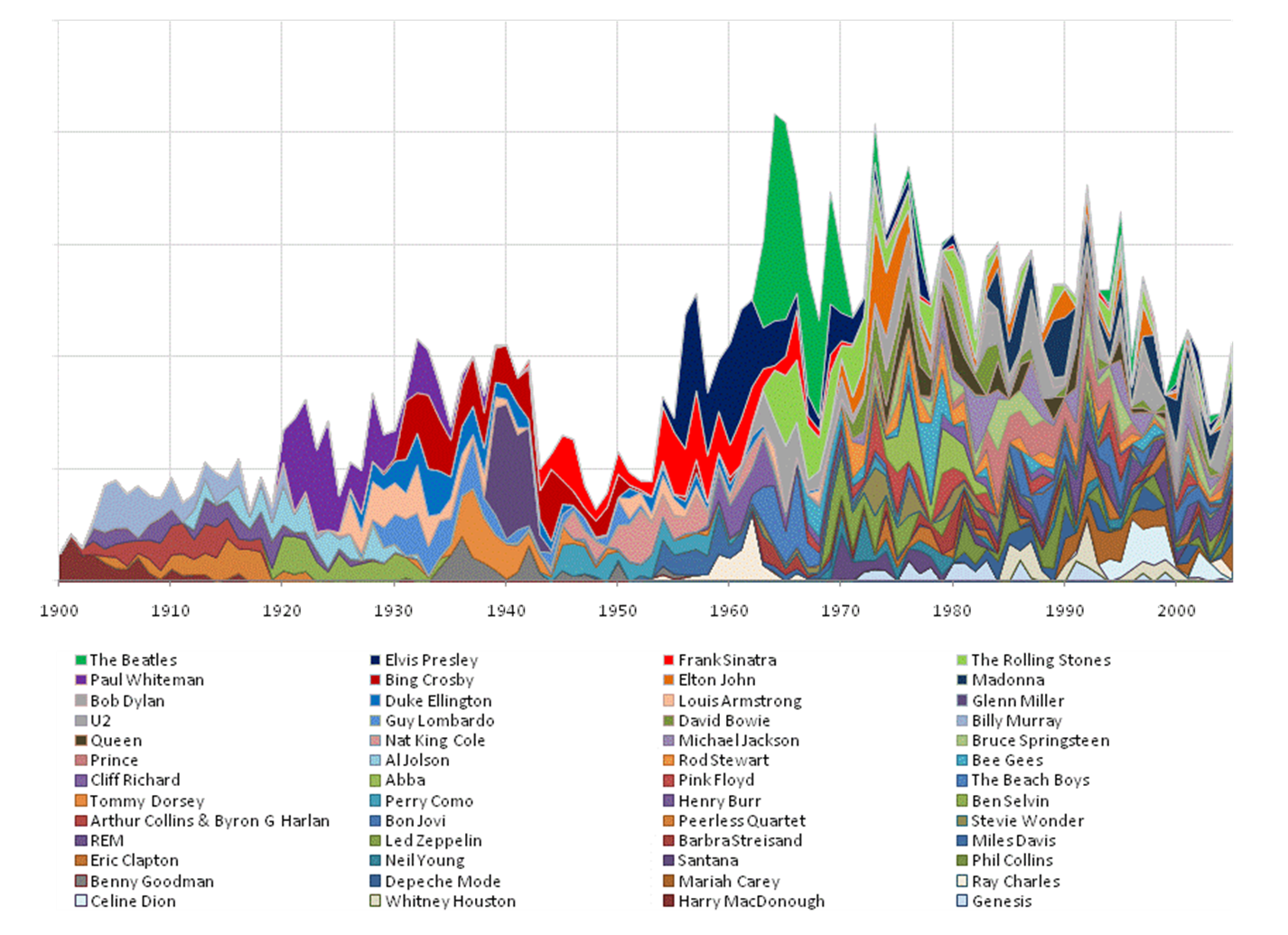
The plot above shows how the top 52 artists rated for each year of the period 1900-2005. This shows that before 1950 artists had longer periods at the top, which either reflects changing dynamics of the music business or is just tied to the small volume of reliable chart data. When this is taken into account it can be seen that there is no consistent bias, artists from the 1920s and the 1980s have scores that can be related. The data from before 1920 is so sparse that this period cannot reliably be measured.
The dip in scores for 1942-1955 is an interesting artifact and one of the things the charts tell us about long term trends. The tailing off since 1990 is a combination of two factors, first the fact that any act whose first hit was after 1995 (such as Eminem) will not yet have accumulated the volume of hits to reach the higher positions, and secondly that the splintering of the market that has been evident since the mid 1980s makes it more difficult for acts to have widespread success.
Most Written About Musical Acts (in Google Books)
If we want to investigate which artists have been most written about then the chart data we have on this site doesn't tell the whole story. Google have provided a tool that can help, the "Ngram Viewer" (which can be found at books.google.com/ngrams/:
The chart above shows some of the most recently written about acts in the Google Books corpus. The artists have been sorted by the frequency of references in the period 1998 to 2009 (the data only goes up to 2009). This once more demonstrates the gap between The Beatles and everyone else. It should also be noted that this list excludes Prince, Madonna, REM, Abba and U2 since all those terms are ambiguous and usually refer to something else, here is a chart including those terms:
The fact these terms are so prevalent in the 19th century is enough of a hint to show why they have to be excluded.
Artists of the millennium
Who was the most successful music artist of the last millennium? On the top of this page the selection has been restricted to recordings, so only those alive since about 1920 have had the technology available to accurately capture their performances, having such a restricted list would seem overly narrow. Given the chance Hildegard von Bingen's singing might have out-sold Britney Spears, but since Hildegard died more than 650 years before the first sound recording we'll never know.
If performers and composers from before the era of sound recordings are to be included there are two other factors, firstly music notation didn't settle down until the 17th century and secondly, in the medieval world, avoiding disease, war and starvation took precedence over most people's musical appreciation. These elements together with a natural bias towards well documented locations (that is mostly European) conspire to mean that only artists from after about 1600 could be considered candidates.
We don't know of any reliable data that can be used to inform this debate, we can't even imagine where objective measurements could be found (if you can suggest some we'd like to hear from you). This particular choice of the top 12 artists of the last 500 years is purely personal. The selection of 12 rather than the more conventional 10 comes from a reluctance to lose some key figures.
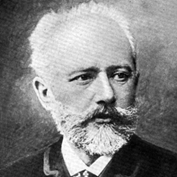
12: Peter Ilyich Tchaikovsky
His various compositions remain popular and continue to be performed all over the world. His personal life was blighted by depression and tragedy, in particular his concern to keep his sexual orientation private obviously had some effect (although how much is a matter of some debate).
1812 Overture
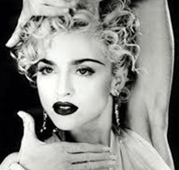
11: Madonna
The level of her achievements could, perhaps, have place her a few positions further down, but the fact that she is clearly the most successful female musician of all time gives her an additional boost.
Vogue
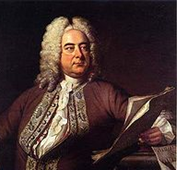
10: George Frideric Handel
Handel has to be in the list, if only because of the fact that 12,000 people turned up to one of his charity concerts in 1749 (causing a major traffic jam). He was a major inspiration for Bach, Mozart and Beethoven.
Water Music
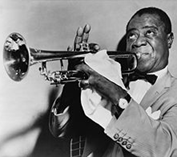
9: Louis Armstrong
It was his trumpet playing that brought Satchmo to prominence but then his stage presence and distinctive voice gave him significant hits for five consecutive decades. He continued to tour until his death, a month before his 70th birthday.
Muskrat Ramble
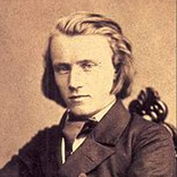
8: Johannes Brahms
The earliest member of this list to have had one of his own performances recorded, he was a virtuoso pianist who premiered many of his own works. The highly constructed nature of Brahms's works was a starting point for a complete generation of later composers.
Hungarian Dances

7: Glenn Miller
At the time of his disappearance, on his way to play for the troops that had just liberated Paris, he was the most widely known band leader in the world. Despite being too old to be drafted he volunteered to join the US forces in 1942.
In the Mood
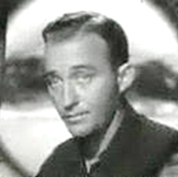
6: Bing Crosby
From 1934 to 1954 Bing Crosby sold more records than any other artist, at the same time he was a leading movie star and radio personality. During 1948, the Music Digest estimated that his recordings had filled more than half of the 80,000 weekly hours allocated to recorded radio music in the US.
White Christmas
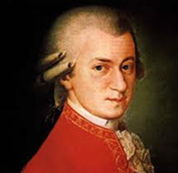
5: Wolfgang Amadeus Mozart
The fact that he was the first artist to embark on an extended European tour marks Mozart out. The fact that he started performing publicly when he was six and composing even earlier shows an astounding level of preciousness. Since he died aged 35 he had to start early to get all in.
The Marriage of Figaro

4: Johan Sebastien Bach
Whether Bach or Mozart should be placed higher is a matter of some debate. Bach's one advantage is that he lived almost twice as long. In 1747 his reputation was so great that Frederick the Great bullied CPE Bach (JS's son) in to persuading his father to visit the palace at Potsdam, the result was a major work (The Musical Offering).
Brandenburg Concertos
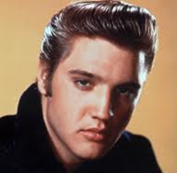
3: Elvis Presley
Whatever happened later the early success of Elvis created the modern music business, of course he had the fortune to have been born at exactly the right time. The fact that he was drafted into the US Army in 1958 disrupted his career at its peak, but he still managed to return to commercial success during the 1960s.
Hound Dog
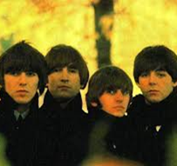
2: The Beatles
Clearly the most successful group of all time, their dominance of the song charts during the short time they were active was absolute. It was their innovation in recording albums, the fact that they wrote so many highly regarded songs and the solo success that all four of them later enjoyed that, just, puts them past Elvis.
Let it be
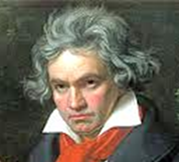
1: Ludwig Van Beethoven
The fall of the Berlin wall was accompanied by playing of Beethoven's Ninth, a piece of music that had first been performed 175 years before. The continued popularity of his music, his influence on later musicians and the tragic story of his deafness have all contributed to his enduring fame.
The comments here are from the the MusicID impact site site. This version is not able to accept comments yet
28 Jun 2024
Next Update+
Hi I was wondering when will your next update be for the world's biggest music act of all time page
14 Jan 2020
List Ranking+
When are you going to update the success rankings on this list as it doesn’tappear to be accurate with the most current data?+
Given the fact that The Beatles have an album in the 2019 top 20, and the current value of music sales is so low I suspect this page would not change much if it had more recent data.
27 Sep 2019
Scores
for the top 100 list that was posted on this page, I realize there are manydifferent ways to calculate the most successful artist of all time but the list that you posted probably represents the one that you prefer, so I like to treat it as "official". I was wondering if, in addition to the list, you could post some sort of associated score for each artist. I would be interested to see how far ahead of everyone else The Beatles actually are, or which two artists' entire successes could be put together to match the success of the Beatles. I would also be interested to see if any of the individual Beatles would make the list on the basis of their percentage contribution to the Beatles as well as their own solo work.
1 Dec 2018
Where's Sam?
I'm surprised Sam Cooke isn't on this list.
10 Jan 2016
MJ
If you're measuring record sales Michael is only behind Elvis and The Beatles. Michael is the biggest pop star to ever walk earth.
We suspect that any realistic measure of record sales would place at least Bing Crosby, Frank Sinatra, Madonna and Pink Floyd ahead. The issue is that there are no trustable sources of worldwide sales data.
...and record sales are not a good measure anyway, our guess would be that Ludwig van Beethoven was the greatest pop star ever and he didn't sell a single record before he died. (we suspect that in 100 years MJ will be about as widely remembered as Paul Whiteman is now)
29 Aug 2015
i didnt like M Jackson, neither will i, But also i cant deny he was the mosttalented man ever to step on planet earth. In fact one of my senses tell me he was an alien. The fair thing is,just dont put him on that list because there no one of his class is there.I would believe you when you say MJ was number 0 (zero) followed by Elvis on number 1. +MJ +was suer talented,like it or not,but you know it.Anway my best singer is R Kelly,but i dont want him on the list because he cant face those giants
You're no a fan but, in your opinion he was the "most talented man ever", not a widely held position we would guess
9 Apr 2015
Elvis
Elvis Presley is indeed the biggest solo artist in the history of music.What's more impressive is he did it all without all the media outlets and music TV channels to promote him.
"you cannot find out the use of steam engines, until comes steam-engine-time" - Charles Fort
8 Aug 2014
Bob Marley
How can you miss the great Bob Marley from the list ????????????....
Bob Marley is song artist 436 and album artist 55 (and the list is based on chart success not greatness)
7 Aug 2014
Can't take this list seriously
No Grateful Dead, First Aid Kit, Phish, or Doc Watson. These lists are awful (IN MY OPINION!).
The Grateful Dead have a listing for albums, but they never had much success selling singles.
First Aid Kit and Doc Watson? Neither have had a hit in any real chart ever!
If you want to find out about cult bands with little commercial success this is the wrong place for you to be looking. We only list acts that have had success
26 Jul 2014
MJ
Michael Jackson only released 6 studio albums in his adult solo career, so it makes sense that by the criteria of this list he would be somewhat lower.
However this shows that this list is blind in terms of giving an accurate portrayal of which artists where "bigger". In terms of fame Michael Jackson, the Beatles and Elvis reached a level no one else did, and MJ was believed to have been the most famous man in the world. MJ Broke all kinds of records thatno one else did, he had the highest attended solo tours in history, had the biggest selling album of all time, won countless awards more than twice of what Madonna did. This is why the Guinness world book of records recognizes MJ as the most successful entertainer in history. Michael Jackson was probably the biggest star in the world and i think the criteria of this list is unfair because there are many more ways to accurately find who was the "biggest" entertainer, but just because an artist enters the charts more often it does not necessarily mean they are bigger in terms of fame etc.
We suspect that Hitler, Stalin and Mao were much more "famous", and Jackson might (or might not) have had the biggest solo tours of the 1980s and 1990s. However those are all difficult things to measure.
Our list focuses on who had the most worldwide success with songs and albums. By that criteria (however unfairly) Jackson is nowhere near Bing Crosby, The Beatles, Elvis, Frank Sinatra, The Rolling Stones or even Madonna.
3 Feb 2014
michael jackson
BY SALES maybe elvis or the beatles
BY SINGING TALENT elvis was nowhere close to michael , nor were the + beatles. John lennon was the most amazing guy from the beatles, agreed, BUT no one could sing like michael jackson.
BY PERFORMANCE michael was very intense , though he sucked some of his performances , elvis was amazing was for that generation , the beatles was a group so cant really compare.
ITS THE RARE TALENT , PERSONA THAT MICHAEL HAD MADE HIM THE BIGGEST STAR IN THE WORLD, AND LETS NOT DENY THAT.
Other opinions are also available
20 Nov 2013
No albums before 1947?
That statement you made is false since frank sinatra had an album in 1946
Ah, no, the word "album" was originally a term for a collection of 78s. The first "Long Playing" record was introduced by Columbia Records in 1948 (so there were no true "albums" in the sense used here before 1948)
12 Jun 2013
Using songs and albums
Just a thought but I think using songs and albums to determine who was thebiggest musical act is a little unfair because artists like bing crosby didn't have albums in their day and are at a disadvantage.
The fact that there were no albums before 1947 is taken into account in these lists
19 May 2013
Artists of the millennium+
This is a very interesting and i'm curious to know on what you used to get the final outcome for this list.
The "biggest music act" list is based on an anlysis of chart achievements, the "Artists of the millennium" list is my personal interpretation of various sources (Steve). I don't know what objective data could help with that.
12 May 2013
King
Elvis and The Beatles +have outsold him FACT. Elvis has had more USA, UK, Canadian and Australian no1 singles and albums than MJ. Just look at the UK SINGLES CHART-- + Elvis has 21 UK No 1s, Beatles have had 17 No1 + MJ only has 7 No1.
Then have a look at the USA - Artists with the most certifications of Gold, Platinum and Multi-Platinum singles in USA-
Elvis- +55Gold, 28 Platinum, 7 Muti- Platinum + Total- 90
Beatles- 24Gold, 6 Platinum, 4 Muti Platinum + Total-34 MJ- +21Gold, 9Platinum, 0 Muti Platinum ++ ++ + Total- 30
Artists with the most certifications of Gold, Platinum and Multi-Platinum albums in USA-
Elvis- 90Gold, 52 Platinum, 25 Muti Platinum ++ +Total-167
Beatles- 47Gold, 41Platinum, 26 Muti Platinum +Total-114
Mj- 12Gold, 11Platinum, 9 Muti Platinum ++ ++ ++ +Total-32
Face it No one comes close to Elvis or The Beatles. Both have sale Claimed sales of over a Billion. And Mj Thriller has been certifield for sale of 42.3 Million and has a claimed sale of 51-65 million. Nowhere near your figure of 110million. Elvis from 1956-1965 then from 1969-1977 had a big new single and album ever year. The Beatles from 1963-1970 where the same. Mj only put out a new album ever 5 years sometimes even longer. The late 60s and 70s he was only big in USA. He only made it big worldwide in 1979 then after the early 90s his career went right downhill. Plus he never had anywhere near as many big singles as Elvis or The Beatles.
16 Aug 2012
Recount Please
Cmon Micheal Jackson should be at number 1 and many agree.. this 1 man out performed the beatles in many ways and it shouldnt matter who put out the most records its about who the fans love the most
So your position is that Micheal Jackson "should" be at number 1 because his fans love him the most?
Our view is that personal opinions are unimportant, measured charts and sales are the things that we rely on.
13 Aug 2012
Beatlemania never ended
If people would do their homework - read their history and then listen to the Beatles music then they would understand that no one is their equal. They were, are and always will be at the #1 spot. +The Beatles are still the best today in 2012, unbelieveable man. You young people out there are very fortunate to have their whole body of work to reflect back on as a whole but I'm sure glad that I was there when it was happening. +Groovy man, just groovy
9 Feb 2012
Elvis should at least be tied at #1
Having read that you acknowledge a case either way could be fairly made for Beatles at #1 or Elvis at #1 I feel at the least you should call it a tie.
As has been pointed out-Elvis sold big and charted big at a time when the record keeping was horrid. In some cases the record keeping was horrid in order to cheat artists out of royalty money owed them.
Systematically for the last 15 years RCA/BMG/SONY has been making an effort to officially audit sales of Presley records around the world for years gone by. Many new gold, platinum and multi platinum awards have been made to him during these years.
His official total at the RIAA for US album sales is now at 134.5 million.....not counting hundreds of releases and re-releases that have multi-millions in sales which just do not meet the certification standards to be counted in his official totals.
BMG in the 1990s showed evidence of these sales to RIAA in hopes of changing the rules in order to count all sales-suggesting a Silver level of certification for a certain level of sales total. RIAA acknowledged the sales, but would not change its certification process.
EPE has been working also to get an accurate counting of all global Elvis sales.
So in light of all the evidence I would hope-at least a tie for #1 is fair.
thanks Ken
There are a number of different ways to estimate success, for some Elvis is top and for others The Beatles get it (and for a few it is Bing, or Sinatra).
In terms of overall song success we feel that a case can be made for either Elvis or The Beatles holding the top slot. Our guess would be that The Beatles sold slightly more songs, but Elvis certainly did more business with the movies.
As you say the uncertainties are greater than the difference between them.
However with albums our estimate is that The Beatles clearly outdid Presley. So our particular ranking (because we think albums are important) is that The Beatles end up on top. Your opinion may be different (it would be a boring world if everyone had to have the same opinions).
26 Jan 2012
Who was the biggest music act of all-time
I think the title of this site should be "Who was the biggest music act of the last century-plus?" There's no representation of who was 'biggest' in previous centuries (therefore you shouldn't say 'all-time'). Of course, you couldn't use album/single sales to determine who was biggest in previous centuries, you would have to use a different metric.
I think the way to truly get at who was 'biggest of all-time' would be how recognized/listened-to an artist is across the entire world. But that would entail a gargantuan amount of work-- i.e. taking scientific surveys/polls in every country on the face of the earth and combining the results. No doubt The Beatles would still be #1 (and Elvis would probably still be #2), but the rest of the list would change quite a bit.
This is an interesting list nonetheless. Thanks for going through the trouble of crunching the numbers. I look at 'greatest music artists' lists all the time on the internet and it's good to see one that actually has some stats to back it up (i.e. not just someone's opinion.)
Interesting point. We don't cover the period before 1900 and it would be fun to try and work out how anyone possibly could.
However we do distingusish between the writer of a piece of music and the performer. Our list of of successful musical "acts", its hard to see how a single "act" can be a success before recording equipment was available. The Mozart family's European tour (starting when Wolfgang was six) was a sell-out success, however I'd be surprised if as many people saw him perform in his whole life as watched a single performance by Beyonce at Glastonbury last year.
We totally agree that sales of singles or albums is a poor measure, after all the success of Judy Garland's version of "Over the Rainbow" didn't come from records (it reached number 5 in the Billboard charts, while Glenn Miller's version reached number 1). By record sales "Deep Purple" was the top US song of that year (1939), see how many people can tell you who sang that!
So for what we're looking at (actual performances of music) we would defend our title, what is listed are the "biggest music acts of all time". Its just unfortunate that Beethoven's 1808 concert took place before it could have become a great live album (of course if recording equipment had been available perhaps the orchestra would have been better rehearsed).
If someone managed to research the most successfull *pieces* of music of all time (for example as you suggest by contrasting the frequency of performances of "Greensleeves", "Ode to Joy", "White Christmas", "Heartbreak Hotel" and "Yesterday") we would be very interested to see the list.
So yes, you have an interesting point, but we would still claim that the limits of recording technology mean that the title is appropriate
28 Dec 2011
the #1+
I don't see what the problem is with #1 the Beatles are exactly who should be #1 no if's and's or but's about it.
22 Oct 2011
michael jackson was an unstoppable juggernaut in his heyday. put him to no 1
It does not matter how many times you demand that the list is reordered, the fact is that other acts had more albums and songs in the charts during the decade. On this site we select a way to measure success and apply that without any adjustment at all, no one gets to "put" anyone to number 1 in any of the lists.
Even if we agreed with your judgement (and ignored all the insults you have inserted in other posts) the rules of the site don't allow anyone, even the administrators, to fiddle with the results.
23 Sep 2011
YOU LIE
Wheres bob marley cmon wtf MJ is more pop than the beatles this is ****
5 May 2010
This best artist of all time list
There is one artist out of 100 that had a peak year since 2000 (eminem #98) 2000-2010 makes up 1/11 since 1900, not 1/100.
Its a great list of good artists, but I think there needs to be equal representation across whatever time period we're talking about. I know you attempt to mention this in your explanation, but I think it could be a fixable problem. But what do I know, keep up the good work.
You are right the adjusted list does appear to penalise artists whose biggest years are after 1999.
Its not quite as bad as you make out since our data don't really have good coverage after about 2007, rather than 2010, but still 1/100 is much smaller than 7/107.
There are two (somewhat related) factors that explain this discrepancy. First of all any artist whose biggest year is recent is liable to still be in the middle of their most popular period, in other words a major portion of their accumulated score is in the future, and hence has not been counted yet.
Secondly some of the charts focus on particular periods in the past, for example if there is a chart of "Hits of the 1990s" then it could be the coresponding "Hits of the 2000s" chart has not yet been published (or at least we have not added it yet). This second case is tricky, for example a hit list from "Oldies Radio" would maybe exclude Eminem but include Madonna (and maybe even allow recent Madonna songs).
In the unadjusted list there are 6 post 2000 artists in the top 100, which is about right. But there are 25 artists from the 1990s, which is way too many.
To be honest if we could find a way to compare artists that was completely "fair" we would use it in our "Song Artist" page. Unfortunately while we keep looking we have not found one yet.
There are a number of ways to get a list that has a more even spread, for example if you took the top 15 artists from each decade list and consolidated I guess you would get close to 100 artists with the type of profile you are after.
If you are interested in doing this type of analysis then you can download the data file and try various combinations. Playing with the data in a spreadsheet, like the free "Calc" program, can reveal all sorts of interesting and unexpected results. If you want to tell us anything you find we'd be happy to hear from you.
Thanks for the input